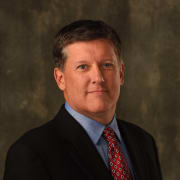Outgoing DP World Tour Boss Advocates for Global Game, But Once Passed on a Chance for That

More Weekly Read: Jack turns 84 | Downplaying LIV Golf rumors and unanswered questions
With his pending resignation looming, Keith Pelley has been the only person close to the ongoing negotiations with the PGA Tour and Public Investment Fund of Saudi Arabia to speak publicly.
The outgoing DP World Tour CEO hasn’t given away any secrets, and certainly didn’t get into the nitty-gritty.
But he’s disclosed enough to suggest that a deal will get done before he leaves in April; that he believes the game needs to be "global" in nature going forward; and that some PGA Tour players were initially reluctant to embrace that idea, thus perhaps holding up discussions.
In interviews each of the last two weeks in Dubai, Pelley hit on the "global theme" several times. "What I would like to see is the game becoming unified with a global strategy," he said, noting that he wants to say in his role to help see a deal completed.

His detractors were quick to point out that Pelley passed on a chance to strengthen the then-European Tour after a 2021 meeting with the PIF in Malta in which it outlined a plan that would see the entities join forces while also possibly seeing the LIV Golf structure—this was before it was launched—incorporated in some way.
Pelley rebuffed the overtures without taking a formal presentation to the players. He later then reached a deal to form a "strategic alliance" with the PGA Tour. The deal was announced in late 2021, saw a 13-year term that would help underwrite purses, the Tour take over a percentage of European Tour Productions and PGA Tour commissioner Jay Monahan get a board seat.
Although the deal has seen some co-sanctioning of events—notably the Scottish Open—the most controversial part saw for the first time the top 10 in the final DP World Tour Race to Dubai standings get PGA Tour cards. That has annoyed more than a few tour loyalists, who wonder why the circuit would let its most accomplished players leave.
Those on the DP World Tour side of the issue believe it was a necessary choice. As Paul McGinley, former European Cup captain and board member told Golfweek last year:
"The idea of us aligning with the Saudis would’ve been a massive risk to our members because, A, we would’ve pissed off the PGA Tour massively," he said. “They would’ve never done any business with us again; in fact, they would’ve gone out of their way to bury us. And, B, if after a couple of years, the Saudis decided we’re losing money on golf, we’re out, we would’ve been at the mercy of those people and we would’ve been in a vulnerable position. I think we made a savvy decision and the path of least resistance and least risk to align with the PGA Tour. That was a very strong deal for us.
"The odds were heavily in our favor and we hitched our wagon and we did so knowing that the days of us going toe to toe with the PGA Tour are gone."
And yet it’s fair to wonder just how much stronger the DP World Tour would be today if it had made an agreement with the PIF—especially in light of ongoing negotiations to bring all the sides together anyway.
Knowing exactly what was on the table is unclear, but several sources have suggested that the PIF wanted to invest in the European Tour similarly to how it has done with the Asian Tour. It has a $300 million commitment to the Asian Tour that saw it form an entire new series of events called the International Series with purses that are higher than on the Korn Ferry Tour.
The investment would have likely been considerably more and it would not have required them to sell part of European Tour Productions while getting paid to produce the TV product. How the LIV model would have existed is unclear, but there were talks to somehow incorporate it in some way.
The PIF pitch was said to be just a presentation, but it apparently never went beyond that. Pelley and his board took the PGA Tour deal, and yet a struggle still exists today.
Pelley in many ways had a thankless job. Sponsorship on the DP World Tour was not robust, the model not the same as the PGA Tour. The Tour subsisted mostly off the back of the lucrative Ryder Cup, but purses are far below those on the PGA Tour and players on the circuit have been jumping to the PGA Tour for years, despite the direct path now available.
Headed to his hometown of Toronto to run Maple Leaf Sports, Pelley also navigated the Tour through the brutal stretch during COVID-19 which saw it struggle to bring events back.
How he will be viewed in the future is likely a matter of perspective.
And it’s also a good bet that how a potential deal with the PIF is worked out will also weigh in that discussion.
